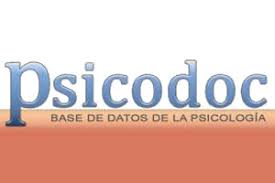View/Download
How to Cite
Dominguez Lara, S. A. (2015). Psychometric properties of a quality of life scale for adults with intellectual disabilities. Psychologia, 9(1), 29–43. https://doi.org/10.21500/19002386.991
More Citation Formats
License terms
▼
This journal provides open, immediate access to its contents, based on the principle that offering the public free access to research helps to promote a higher global exchange of knowledge.
As such, all journal articles are published under a Creative Commons Attribution-NonCommercial-ShareAlike 4.0 International License (CC BY-NC-SA), by which commercial use of the original work or its possible derived works is not allowed, and the distribution thereof must be done with the same license elements regulating the original work.
http://creativecommons.org/licenses/by-nc-sa/4.0/
Abstract
The aim was to analyze the psychometric properties of the objective section of the Integral Quality of Life Scale in a sample of 102 persons
with intellectual disabilities, 61 men (59.8 %) and 41 women (43.7 %), aged between 18 and 58 years (M = 24.05, SD = 9.57). Of the
participants, 38 (37.3 %) have a mild disability, 46 (45.1 %) have a moderate disability, and 18 (17.6 %) have a severe disability, as reported
by the family and institutions. The confirmatory factor analysis conducted reveals that this presents a five-factor structure with an empirically important general factor (bifactor model). Furthermore, regarding the reliability of the construct by coefficient Rho an indicator of .952 was
obtained, and based on the model bifactor reliability factor was estimated through the omega coefficient, obtaining an indicator of .951 to the
total scale, .888 for the «Self-Determination», .643 factor for the «Social Inclusion», .859 factor for the «Laboral Wellbeing» factor, .918 for
the «Material Wellbeing» and .866 for factor factor «Emotional and physical Wellbeing». We conclude that the objective scale has adequate
to continue validation studies using other strategies, supporting its use as a tool for assessing the quality of life in adults with intellectual
disabilities.
with intellectual disabilities, 61 men (59.8 %) and 41 women (43.7 %), aged between 18 and 58 years (M = 24.05, SD = 9.57). Of the
participants, 38 (37.3 %) have a mild disability, 46 (45.1 %) have a moderate disability, and 18 (17.6 %) have a severe disability, as reported
by the family and institutions. The confirmatory factor analysis conducted reveals that this presents a five-factor structure with an empirically important general factor (bifactor model). Furthermore, regarding the reliability of the construct by coefficient Rho an indicator of .952 was
obtained, and based on the model bifactor reliability factor was estimated through the omega coefficient, obtaining an indicator of .951 to the
total scale, .888 for the «Self-Determination», .643 factor for the «Social Inclusion», .859 factor for the «Laboral Wellbeing» factor, .918 for
the «Material Wellbeing» and .866 for factor factor «Emotional and physical Wellbeing». We conclude that the objective scale has adequate
to continue validation studies using other strategies, supporting its use as a tool for assessing the quality of life in adults with intellectual
disabilities.
Downloads
Download data is not yet available.





















